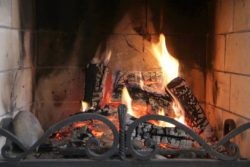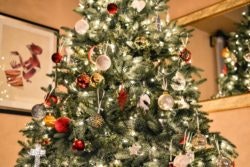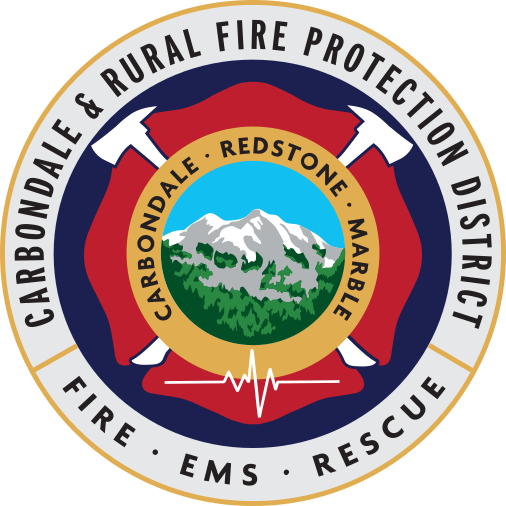Winter Safety Tips
By admin Published November 15, 2016

Winter storms and cold temperatures can be hazardous. Stay safe and healthy by planning ahead. There are many things to think about and be aware of as the winter months draw near. Here is a list of things to consider for staying safe this winter:
Carbon Monoxide
Regular maintenance and inspection of gas burning equipment in the home can minimize the possibility of CO gas exposure, however accidents and build ups do happen. There are a few preventative measures you can take to avoid harm from CO gas.

- Know the signs of CO exposure: From mild headache, fatigue, nausea, and dizziness to serious headache and dizziness.
- Install a CO Detector.
- Replace the battery for your home’s CO detector each spring and fall.
- Do not heat your home with a gas range or oven.
- Never run a car or truck inside an attached garage .
Cleaning Chimneys
There is no one-size-fits-all rule for how often to clean your chimney flue, but it only takes a small accumulation of creosote glazing to create the potential for a chimney fire. Having a clean chimney can eliminate chimney hazards. Here are some key tips on cleaning your chimney:
- Chimneys, fireplaces, and vents should be inspected at least once a year for soundness and freedom from deposits.
- What is the best time to clean your chimney? Before the start of the burning season during the spring, summer or early fall is a great time!
- Should you clean a gas heated chimney? Yes! Although gas is generally a clean burning fuel, the chimney can become non-functional from bird nests or other debris blocking the flue.
Christmas Tree Safety
- Choose a tree with fresh, green needles that do not fall off when touched.
- Make sure the tree is at least six feet away from any heat source, like fireplaces, radiators, candles, heat vents or lights.
- Use lights that have the label of an independent testing laboratory. Some lights are only for indoor or outdoor use.
- Always turn off Christmas tree lights before leaving home or going to bed.
- Get rid of the tree after Christmas. Dried-out trees are a fire danger and should not be left in the home or garage, or placed outside against the home.
Use Fireplaces and Wood Stoves Safely
- Get your fireplace or wood stove cleaned. Creosote build up in your chimney can cause a fire if not taken care of.
- Burn only well seasoned wood in your fireplace or wood stove. Other materials such as newspapers, waxed cardboard, or non-wood materials can create harmful off-gases and burn in unpredictable ways.
- Don’t leave a fire unattended. If you start a fire in your fireplace, make sure to put it out and close the screen or door before going to bed or leaving the house. If heating your home with a wood stove, make sure the door is closed and latched and the damper isn’t letting too much air into the stove, which could reignite calming embers.
- Make sure you have working Smoke and Carbon Monoxide (CO) detectors in your home. If there is a malfunction with your fireplace or stove flue, smoke and CO detectors will alert you if the air in your home becomes unsafe.
Prevent Slips and Falls
- Shovel walkways early and often during snowfall. Walking on snow compacts the snow and makes ice, which is harder to shovel and can be slippery, especially if covered by new snowfall.
- Scatter salt, sand, or snow melt on frequently traveled paths. If you have pets, be sure to use pet friendly snow melt in case it is accidentally ingested!
- Clear handrails. Easy access to a dry handrail can prevent a loss of footing from becoming a painful fall.
Be a Good Neighbor
- Keep an eye on elderly neighbors. Offer a hand with snow clearing or transportation if it appears difficult for them.
- Know the fastest way to get help. Call 911 at the first sign of trouble. In emergency situations, minutes can mean the difference between life and death.
- Be aware of your surroundings, especially in rural communities. If you see, smell, hear, or feel something out of the norm, report it immediately. Inclement winter weather can cause all sorts of complications, and the sooner you report them, the sooner you’ll be able to rest easy knowing your neighborhood is safe!
Don’t Forget About Outbuildings such as Garages, Shops, Sheds, or Barns!
- Make sure heat lamps and space heaters are on a sturdy surface, a safe distance away from anything flammable. Turn them off when they’re not in use.
- Check wiring and electrical equipment for damage. Make sure dust and cobwebs are cleared away from electrical outlets and light fixtures.
- Store flammable materials such as oily rags and gasoline in a metal box or cabinet away from heat.
